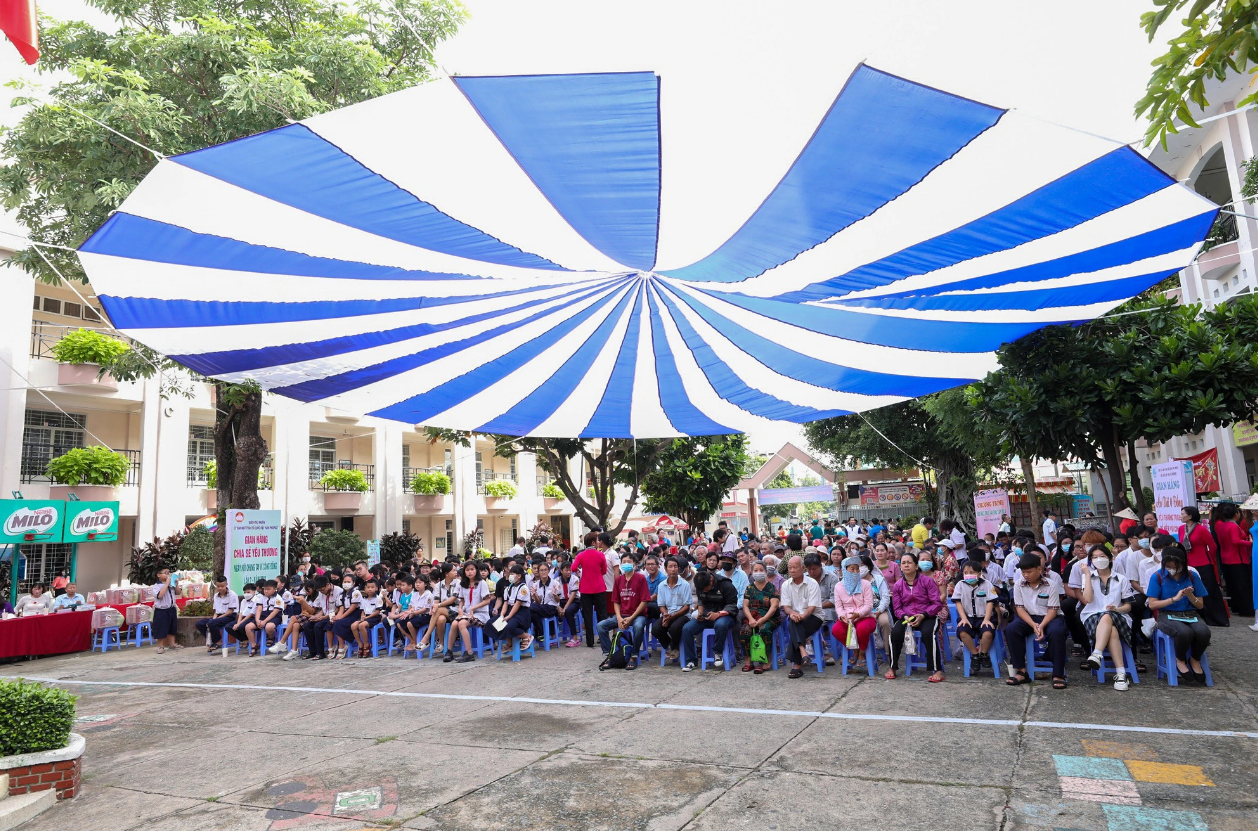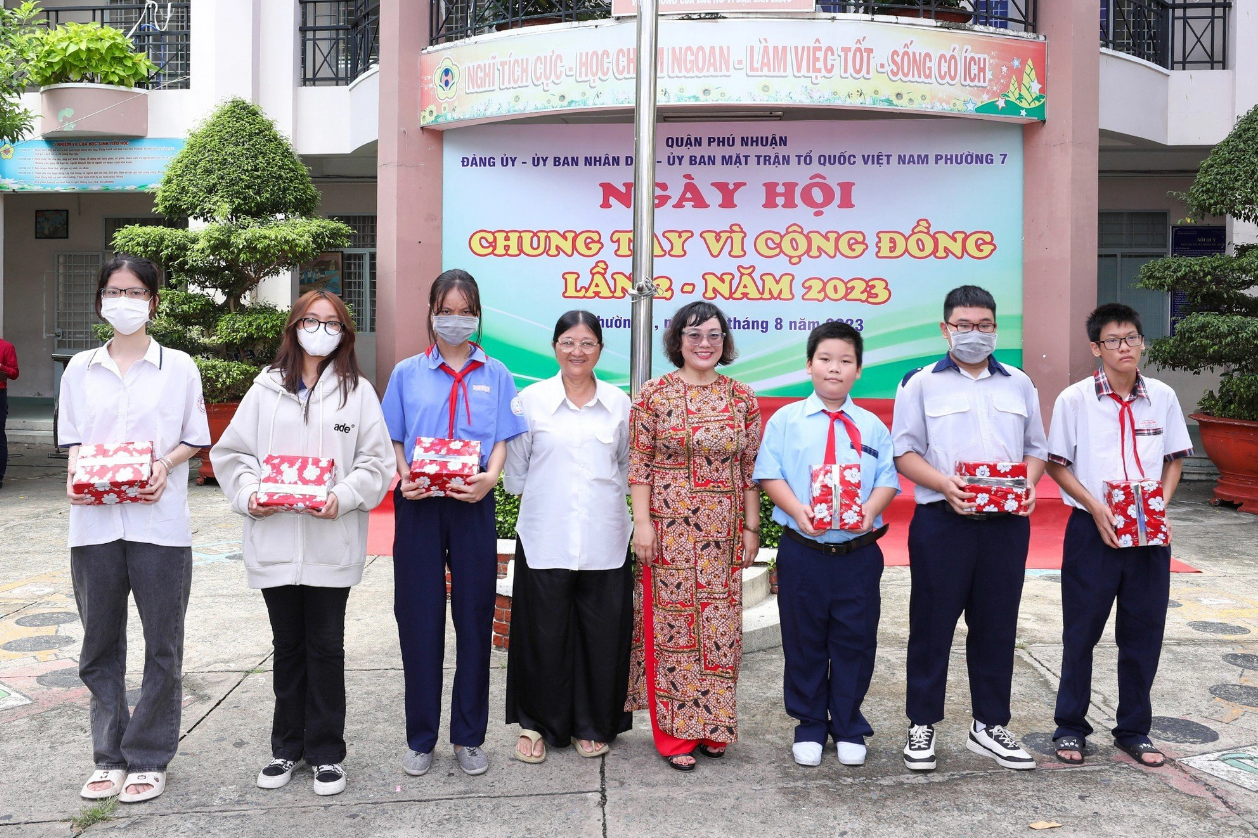The plastic exchange program was held at Dong Ba Elementary School on Phan Dang Luu Street in Ward 7 as part of the second ‘Joining Hands to Build a Better Community Day 2023.’
Despite its small scale, the exchange event brought happiness to residents and had a positive impact on the environment.

The ‘Swapping Recycling Trash for Gifts and Plants’ program takes place at Dong Ba Elementary School in Ward 7, Phu Nhuan District, Ho Chi Minh City.
During the exchange event, the organizer distributed 108 gift sets, 160 scholarships, and a laptop worth VND100 million (US$4,162) to students and disadvantaged households in the ward.
In addition, the program featured a zero-dong ao dai (Vietnamese traditional costume) stall, a ‘Sharing Love’ booth, a free haircut service stand, and a booth for traffic rule consulting services.
The plastic exchange event aimed to promote trash classification and reduce the use of single-use plastic bags.
Nguyen Huynh Hai Dang, chairwoman of the Ward 7 People’s Committee, hopes that this practical program will quickly gain attention from individuals, companies, and organizations. She also wishes for more community-driven programs and environmental protection initiatives.

Gifts and scholarships are awarded to needy students within the framework of the second ‘Joining Hands to Build a Better Community Day 2023,’ which started on August 26, 2023.
Statistics from the Ministry of Natural Resources and Environment reveal that Vietnam consumes over 30 billion plastic bags each year, with each household using five to seven bags daily. These plastic bags are typically used once and then discarded, causing significant harm to the environment.
In Hanoi and Ho Chi Minh City, the two major cities in Vietnam, around 80 metric tons of plastic garbage are disposed of daily, with plastic bag waste accounting for seven to eight percent of the total. Ho Chi Minh City alone produces approximately 9,800-10,000 metric tons of waste per day.
The city has three main waste treatment facilities with respective capacities of 1,800 metric tons, 1,000-1,400 metric tons, and 6,000-6,800 metric tons per day. While Ho Chi Minh City aims to recycle and generate electricity from 80 percent of its waste volume by 2025, technology-based waste treatment projects have yet to materialize.
In light of this, the Ho Chi Minh Department of Natural Resources and Environment has proposed that the municipal People’s Committee consider extending the deadline for achieving this target by two years.
For the latest news about Vietnam, follow us on Facebook or Twitter!









